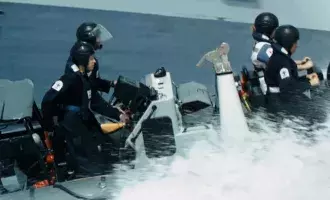The Insect Biomass Conversion Task & Finish Group (IBCTFG) is calling on the UK government to narrow the global ‘protein gap’ by supporting insect protein production.
The global demand for protein vastly outweighs supply, an issue that will only become more acute as those from emerging economies switch to higher protein diets. Introducing insect protein to supplement common alternatives like fishmeal or soya provides a vastly more sustainable way to significantly narrow the global gap in protein, reduce deforestation and assist sustainable aquaculture growth challenged by limited global supplies of marine feed ingredients.
This innovative new sustainable and ‘clean’ industry that could transform agri-food productivity in the UK, could be worth £1.0bn and could generate an estimated 3300 direct jobs and 600 indirect jobs in just five years.
The IBCTFG - led by Fera, Capita’s joint venture with Defra - is committed to delivering insect production at scale in the UK and has just released its first UK market report evaluating the case for the UK government’s support of insect biomass conversion. The report sets out the below roadmap to ensure the UK becomes world leader in insect protein and delivers UK protein sufficiency:
- the UK government to issue a national statement of support
- government and industry to support a central body that could drive rapid sector development for the UK
- government and industry to collaborate to secure dedicated funds to drive market development
- government to lead on delivering insect biomass legislation and regulation
- government to devise and provide short term fiscal incentives for early adopters.
Andrew Swift, CEO, Fera, said: "Insect protein production can be a big part of the solution to the global protein deficit for sustainable rearing of livestock. This innovative and ‘clean’ industry has huge economic and environmental potential."






